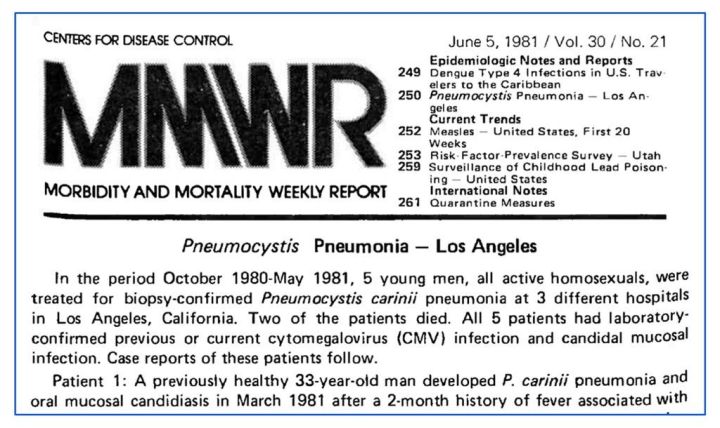MAVERICK CITIZEN OP-ED
Forty years later – Let us not forget HIV/Aids

The 5th of June is the day we remember as being the first time that the disease we now know of as Aids was identified. A cluster of patients in Los Angeles were reported in the US Centers for Disease Control and Prevention Morbidity and Mortality Weekly Report as having a cluster of very rare infectious diseases only found historically in severely immune compromised patients, such as those after organ transplant and cancer therapy.
Tim Tucker is a Clinical Virologist and CEO of the public health organisation SEAD Consulting. He is also adjunct Associate Professor at University of Cape Town School of Public Health and Family Medicine.
That was 40 years ago today.
Within two years, the virus causing the disease, HIV, was identified and since then the world has seen 80 million people infected globally, of whom an estimated 35 million are dead. Since its discovery, scientific strides have been made in the prevention, treatment and care components of HIV, and HIV infection has become manageable. The biomedical progress has been astonishing, including the possibility of an effective HIV vaccine in the future.
The Lancet journal paid tribute to that milestone with a special focus this week on the tragic history of HIV over the 40 years – as well as the scientific and community achievements.
In reading The Lancet article on Friday (4th), it occurred to me that I see so much less about HIV/Aids these days in the press. Indeed, this morning I have scanned News24, TimesLive, Eyewitness News, Business Day, BBC, Washington Post and New York Times, and not a single one has any article recognising this milestone. It concerns me that such a milestone may be missed by the major press outlets, as we focus so much energy on battling other major issues, including Covid-19.
Perhaps it is not too surprising that the 40-year anniversary goes relatively unnoticed in the popular press. Society seems to be exhausted. We have such major challenges that we are all facing, from the traumatic Covid-19 daily experiences to global warming, poverty, massive corruption, governance challenges, and a world severely polarised on almost every issue.
But if we see less attention given in the press to HIV/Aids, it may also point to the fact that the HIV epidemic continues to be “medicalised” at the expense of societal and political elements that are so important in eradicating any pandemic. It is reported that the Covid-19 epidemic has in a very short time reversed many of the gains in HIV (and other) development indices that have been made over decades. Data shows that far fewer people are getting tested during the Covid-19 pandemic, and fewer are being given access to treatment across the continent. This needs to be addressed urgently. The terrible toll of HIV on society over the past 40 years needs to be highlighted over and over, even if we are consumed by Covid-19 and other challenges.
In remembering the 40 years since Aids patients were first identified, let us remember that many remain deeply affected by the HIV pandemic. It has not gone away. Despite the strides made in prevention and treatment, sub-Saharan Africa remains the epicentre of the HIV epidemic, with inadequate infrastructure, healthcare workers and budgets to truly manage the epidemic with care, compassion and the best science. We know how to prevent infections through easy-to-use interventions that should be readily available; and current treatments are extremely effective with a single, cheap pill a day. However, the above societal, infrastructure and human capital limitations across much of the world prevent many communities from accessing these interventions.
In addition, global data shows poorly resourced communities across the world, together with key populations, such as men who have sex with men, transgender groups, sex workers, etc, are where most new infections occur. These communities desperately require more dedicated and focussed support, through programmes that actively recognise the inherent prejudices and structural barriers that limit access to HIV-related care.
Society needs to reflect on the past 40 years of HIV. There needs to be a renewed political will, together with dedicated country-level and global programmes to gain complete control of the HIV epidemic. This is now an achievable objective within a relatively short time. DM/MC



















 Become an Insider
Become an Insider
Comments - Please login in order to comment.